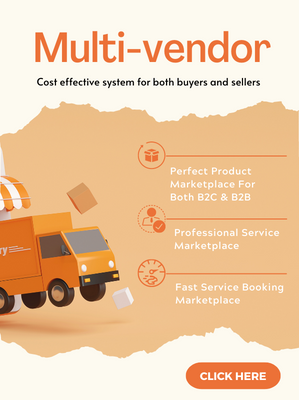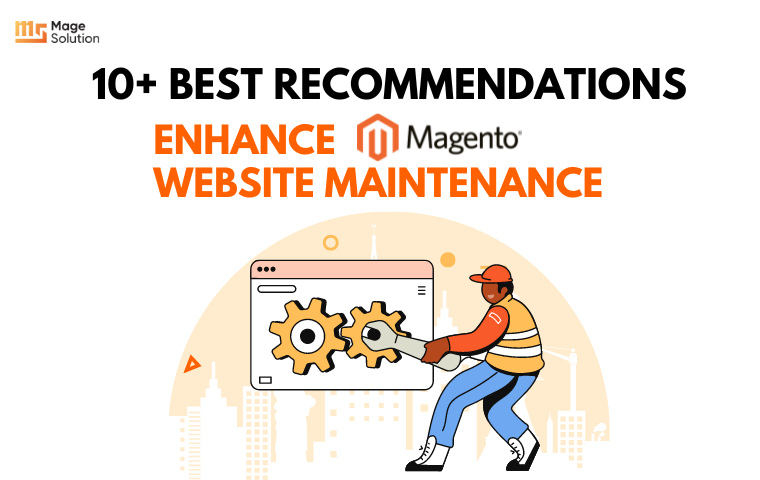
Introduction
The prosperity of eCommerce is like a wave, pulling in many e-businesses with the desire to stay ahead of the curve and bring enjoyable shopping experiences to customers. According to Statista, global retail E-commerce sales are expected to reach 7.4$ trillion USD by 2025. Deploying an online store is also a challenge for many business owners in this context. If you are also hesitant about the next step, stay tuned in this blog about the concept of the best CMS for eCommerce and how it helps you run your store with ease.
What is CMS for eCommerce?

CMS stands for Content Management System, which simplifies the process of producing digital materials, especially CMS for eCommerce, a game-changer to control your online store. Instead of struggling with countless efforts to maintain your online presence, CMS platforms can support your entire management easily, from building, adjusting and operating a successful eCommerce.
The two most popular forms of CMS for eCommerce are Open-source and SaaS, with the biggest thing in common being a user-friendly infrastructure for store owners to freely update and integrate layouts and contents on the webpages without coding skills.
Main features of CMS For Online Business

If you’re a novice with online business and CMS platforms, do not ignore the outstanding features of the best CMS for eCommerce that can contribute to your long-term progress.
SEO-friendly Attributes
SEO can be considered an essential part of any website, especially with eCommerce, fierce competition is the driving force for you to improve page performance as well as boost search rankings on search engines. Because consumers search for products on the Internet every day, it will be a big advantage if you can optimize your website and appear in the top 10. Utilizing eCommerce content management systems can help you customize content relating to SEO on-page, such as Page Titles, Header tags, Meta Descriptions, etc. In addition, businesses can add SEO-optimized materials like videos, images, or banners to their stores to create an eye-catching appearance.
User-friendly
Due to the characteristics of open-source CMS in some well-known platforms like Shopify, Magento, and Wix, entrepreneurs can definitely set up an eCommerce store from scratch, regardless of technical competency. Hence, this solution gradually became popular among business owners who want to speed up in the market.
Security
For any eCommerce platform, security is the utmost factor in maintaining customer trust in implementing cross-border transactions. Once an e-commerce website encounters a cybersecurity breach, all customer data will be exposed and lead to bad guys taking the opportunity to commit fraud. It’s essential to go with a CMS for eCommerce that includes the feature to warn users when security vulnerabilities arise automatically. At the same time, a trusted CMS needs to follow PCI compliance to protect your website as well as the shopping experience for your customers.
Existing Integrations
Best CMS for eCommerce facilitates businesses to scale up, specifically implementing multi-channel selling plans. With a treasure trove of extensions you can integrate to your online store, your content can be synchronized and tracked from social media platforms to Marketplace like Amazon & Google Shopping to boost revenue. Furthermore, businesses can install add-ons from CMS to optimize 24/7 customer support.
Explore the best CMS for eCommerce in 2023 (Pros & Cons)
Magento

Due to its open-source framework, Magento is one of the most popular eCommerce platforms in the world, with extensive customization possibilities. The system is developed in PHP, which allows enterprises to set up web-based stores in minutes. As of Q2 2023, Magento had 152,742 live stores, representing a 37% increase over the same period last year (Tech report). Magento is the best CMS for eCommerce since it provides a wide range of functions to help e-businesses run smoothly. Merchants can integrate a variety of extensions, such as CRM, ERP, and chatbots, to streamline the customer journey via Omnichannel, M-commerce, and so on.
>>> Read More: Understanding Comprehensive Omnichannel eCommerce
As a Magento Certified Partner, we can support your desire to create an eCommerce store from the ground up based on 15+ years of experience. Explore our Magento entire services to optimize resources and expand your business.
Pros
- Fast Loading Speed
Minimize abandoned cart rate with rapid page speed within 1-2 minutes – golden time for customers to stay on the shopping page
- Personalize content and Marketing Tactics
Automate marketing campaigns to attract organic traffic and retain customers
- Diversified Magento Themes (Both Free & Paid)
Freely customize your content and page layouts based on available 500+ Magento themes
- Third-party Extensions
Browse through the wide range of extensions available to enhance your online payment, delivery and customer support experience
- Support enterprise-level software
Magento Commerce and Magento Commerce Cloud cater to tools and functions that can serve the requirements of complex & large-scale businesses.
Cons
- Price
Some advanced plugins will have to be charged separately, such as payment gateways, and some Magento plans will also be a bit high for small businesses.
- Limit Support
If there is no maintenance team, you can only ask from Magento’s developer community and it takes time to respond.
- Competency Required
It will be difficult for a non-IT person to operate and build on their own because the platform also has a certain complexity
Shopify

Shopify’s flexible features and user-friendly interface have made it the #1 SaaS platform among merchants on every continent. Businesses of any size can be built and operated using this versatile ecommerce content management systems. To further boost website performance and customer experience, Shopify allows businesses to easily implement security and payment integrations. Shopify is definitely the best CMS for eCommerce, as evidenced by its 2.1 million daily users.
>>> Read More: Shopify Blog: The cost-effective way to promote your Shopify store organically
Pros
- User-friendly
The interface is easy to use and intuitive, helping to manage all processes within a single dashboard
- Access to library themes
A collection of stunning interface designs & layouts helps businesses attract customers with a stylish and mobile-friendly storefront
- Payment Security
Shopify CMS handles all the technical aspects, such as SSL certificates, PCI compliance, GDPR compliance, and DDoS mitigation.
Cons
- Additional Cost
Some themes need to be charged, and transaction fees on this CMS will also be higher than on other platforms
- Expert Required
Technical operations on the system will also need specialized developers to handle, similarly custom features also require people familiar with the platform.
WooCommerce

WooCommerce is a powerful plugin that makes the transition from a WordPress site to a web-based eCommerce easy. On a daily basis, WooCommerce is downloaded at least 30,000 times from WordPress.org (Wpswings). These statistics have proven the popularity of this CMS for eCommerce. Within a few clicks, merchants can create product catalogs and order management and tracking functions based on the existing WordPress system.
Pros
- Unlimited customizations
Ability to customize content, add-ons, and up to 1,300 themes for your eCommerce interface
- SEO-powered
Powerful toolkit from WordPress helps optimize SEO effectively, such as Yoast SEO, Google Analytics, SEMrush
- Multi-gateway payment
Businesses can increase security and customer satisfaction through transactions on the system that are paid from default gateways such as PayPal Standard, PayPal Checkout, Stripe, Square, Amazon Pay, and more.
Cons
- Platform Comprehensive
The website admin needs to have knowledge of the WordPress platform as well as WooCommerce to fully control problems that arise
- Additional Fees
Some extensions and WooCommerce themes require additional fees to use. Costs for domain and hosting will also be separate.
- Only WooCommerce Theme
Users will be limited in terms of themes because the WooCommerce plugin will only be compatible with WordPress themes
Bigcommerce

A rising name in the list of best CMS for eCommerce is Bigcommerce – a space for enterprises of all levels to set up their e-stores. More than 60,000 store owners have successfully deployed eCommerce websites on Bigcommerce thanks to its robust scalability and many innovative features supporting multi-channel sales. Powerful SEO and API integration capabilities also help entrepreneurs connect with other CMS to operate their businesses effectively.
Pros
- Easy-to-use
Drag-and-drop function makes it easy to create a sales page in just a few mouse clicks, making editing the page’s content more convenient than ever.
- SEO-compatibility
This CMS allows users to customize elements (Meta tags, Headlines, Page Titles, etc) that meet SEO standards to increase organic searches as well as rankings on search engines.
- Customer Service
24/7 live chats and support from the platform for every Bigcommerce plan you choose. Customers can understand deeply about this CMS due to its help center’s resources.
Cons
- Price
Bigcommerce Price Plan will be relatively higher than other platforms because it is not an open-source CMS
- Limit Bandwidth
Bigcommerce is limited in bandwidth and API calls, so it will partly affect the performance and functionality of the website.
Squarespace

Squarespace is one of the best CMS for eCommerce that offers an all-in-one solution for merchants. This is also the easiest CMS to use, suitable for newbies to create a complete website with all the basic features and an attractive interface for an e-store. In addition, this ecommerce content management system also provides high compatibility for mobile devices, which significantly increases orders for businesses.
Pros
- Free Transactions
Retailers can list and sell countless products on the platform without worrying about transaction fees – that’s a huge bargain
- Unlimited Storage
A robust system allows you to upload millions of contents and products without any extra costs or slow-loading speed
- Responsive and mobile-optimized templates
Mobile-centric functions and layouts can support many business purposes to reach customers, such as blogging, portfolio, marketing initiatives, etc.
Cons
- Limit Migration
Since this CMS is a proprietary platform, migrating to another CMS will be very difficult because there are no extensions to support this. Modifying source code is also not possible on this CMS.
- No Phone Support
The system does not have 24/7 support via hotline, so you can only communicate via email or live chat to report problems.
- Cost
For large-scale businesses with complex requirements, the Squarespace plan may not be optimal in terms of cost packages compared to other platforms. Merchants will also have to pay additional fees if annual revenue exceeds 400,000 USD
Conclusion
To wrap up, CMS for eCommerce has become an essential factor for the sustainable development of businesses globally. Hopefully, the findings from the top best CMS for eCommerce in this article can help business owners better understand the advantages and disadvantages of the platforms to make a wise choice for your upcoming eCommerce. Whether you want more information about the CMS projects we have implemented, contact us for further consideration!



